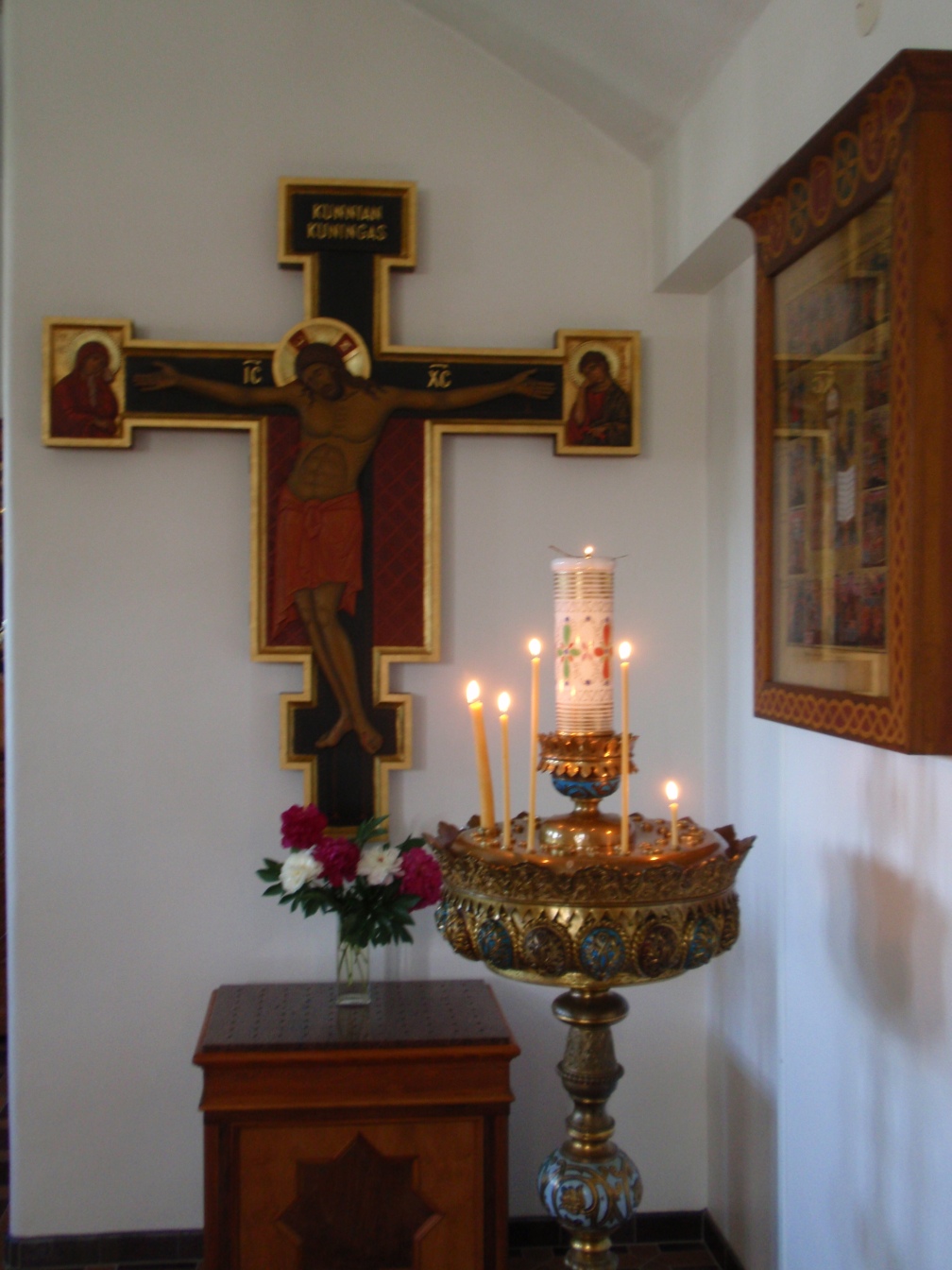
Uuden Valamon luostarin pääkirkko, Serafim Sarovilaisen muistopäivänä. Heinäkuussa 2009 vierailin ensimmäisen kerran paikan päällä. Kuva Antti Filppu.
Olin ehtinyt jo unohtaa, miten kauniisti ja yleistajuisesti Andrei Tarkovski esitti asiansa, ja miten hienosti hän puhui Steinerista. Kun luin Tarkovskin kirjan Vangittu Aika ensimmäisen kerran alkuvuodesta 2001, siinä olleet elämän- ja maailmankatsomukselliset teemat tekivät minuun suunnattoman vaikutuksen. Kyse oli niin vahvasta kokemuksesta, etten tiedä olenko koskaan ennen tai jälkeen nähnyt vastaavaa. Olin löytänyt hengenheimolaisuutta, joka auttoi kestämään vaikean elämänvaiheen yli. Aivan kuin joku olisi pukenut sanoiksi asioita, jotka koin todellisiksi omassa ajattelussani, mutta joille en ollut aiemmin löytänyt sanallista muotoa. Tarkovski on näyttänyt tietä myös tuomalla yhteen antroposofiaa ja ortodoksisen kirkon teologiaa. Tänä päivänäkin tarvitaan, ehkä enemmän kuin koskaan (kuten sanonta kuuluu), tämänkaltaista ”ekumenian henkeä”.
Andrei Tarkovskin haastattelu 80-luvulta.
”’Don’t let him convert you,’ Alexandra Bellow had warned me. To what? To the ideas Charlie has taken from Dr. Rudolf Steiner, who early this century propounded Anthroposophy, a somewhat cloudy doctrine about the nature of man. ’She thinks it’s one of my amiable eccentricities, she still thinks it’s amiable.’ How Mr. Bellow loves the quirks of the higher mind!
’Some of the visions I found in Steiner are rather disturbing,’ he says, ’of the spirit actually seeing the body itself from another point of vantage. It puts back into life a kind of magic we’ve been persuaded to drop. We give a perfectly ignorant account of the external world, which becomes drier and smaller all the time. Why be ignorant and dehydrated as well? When Steiner tells me I have a soul and a spirit, I say, yes, I always knew that.’
Very few people read Steiner, he’s not an OK name in the right circles, but then Mr. Bellow has never been OK. ’I came into American life from the bottom, I grew up in the ugliest slum in Chicago, and what am I to think of the way things are?’ He was brought up an orthodox Jew, with no chance of the family keeping to observances. In the bad old, good old days his father went in for distilling and bootlegging, his boys sticking on the phoney labels and getting to know the Mafia distributors. Saul was the only one to go to college, at Northwestern, as it happens, but his two elder brothers have made their fortunes almost as a matter of course (echoes of which may be found in Humboldt’s Gift). ’If you grew up in Chicago you felt isolated anyhow when you stepped into a library.'” The Telegraph / Saul Bellow interview (1975), by David Pryce-Jones


